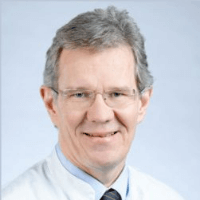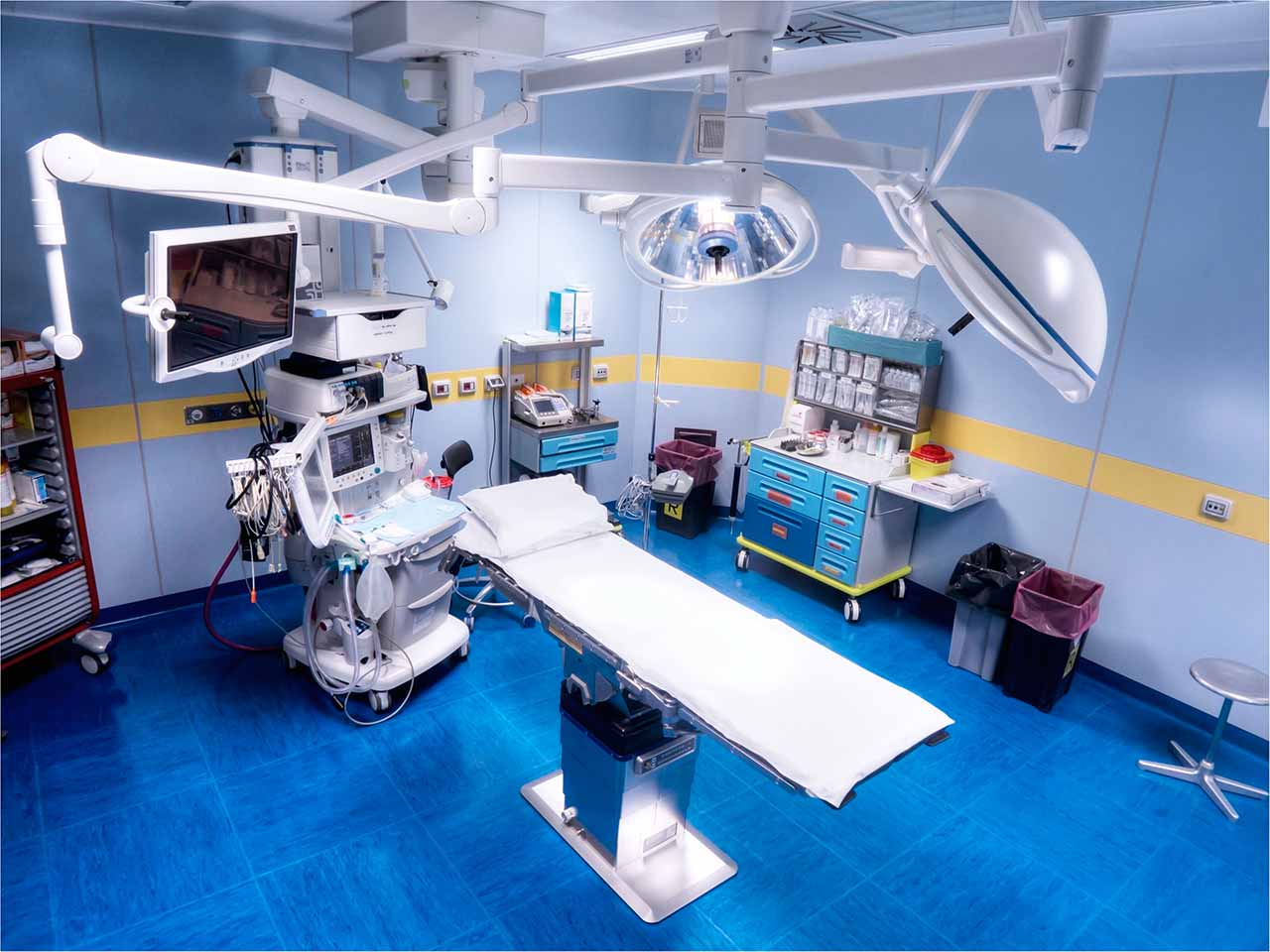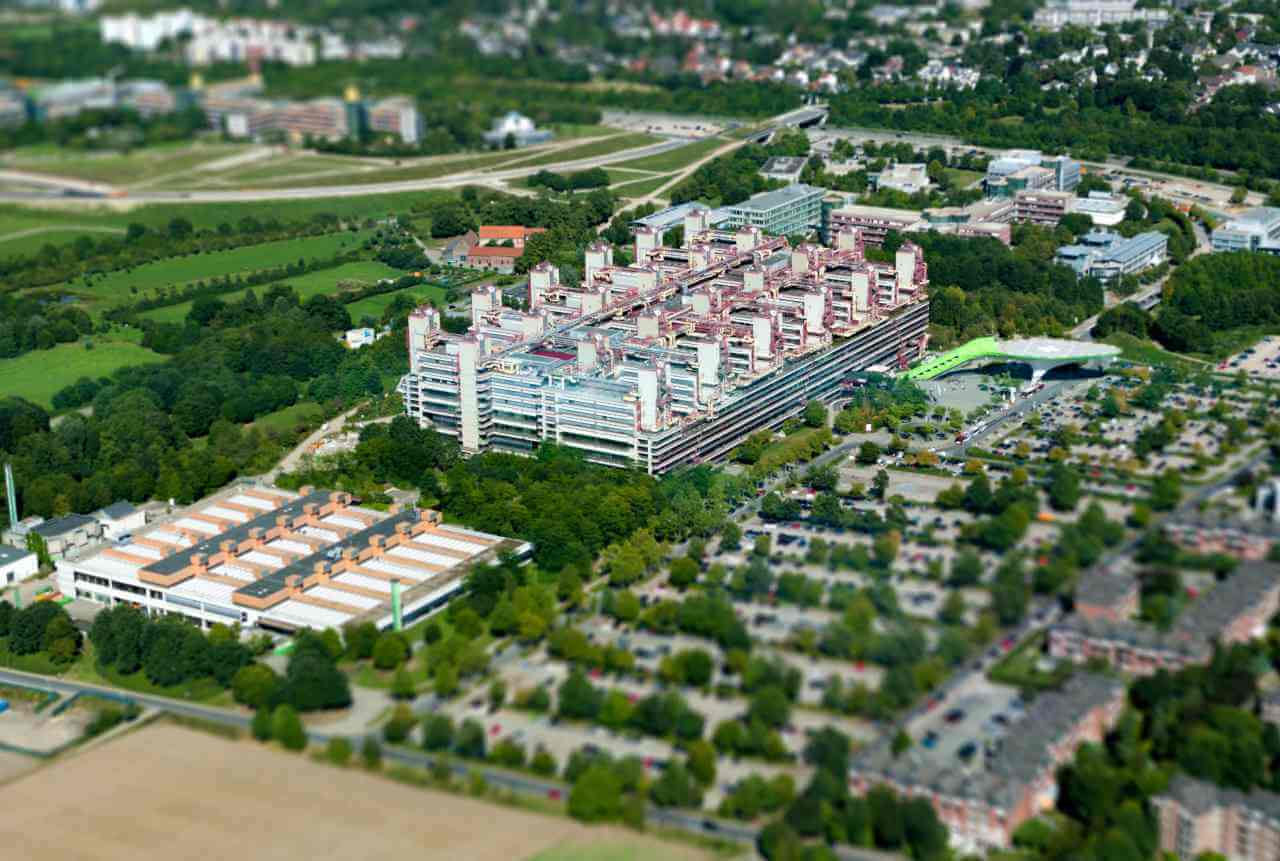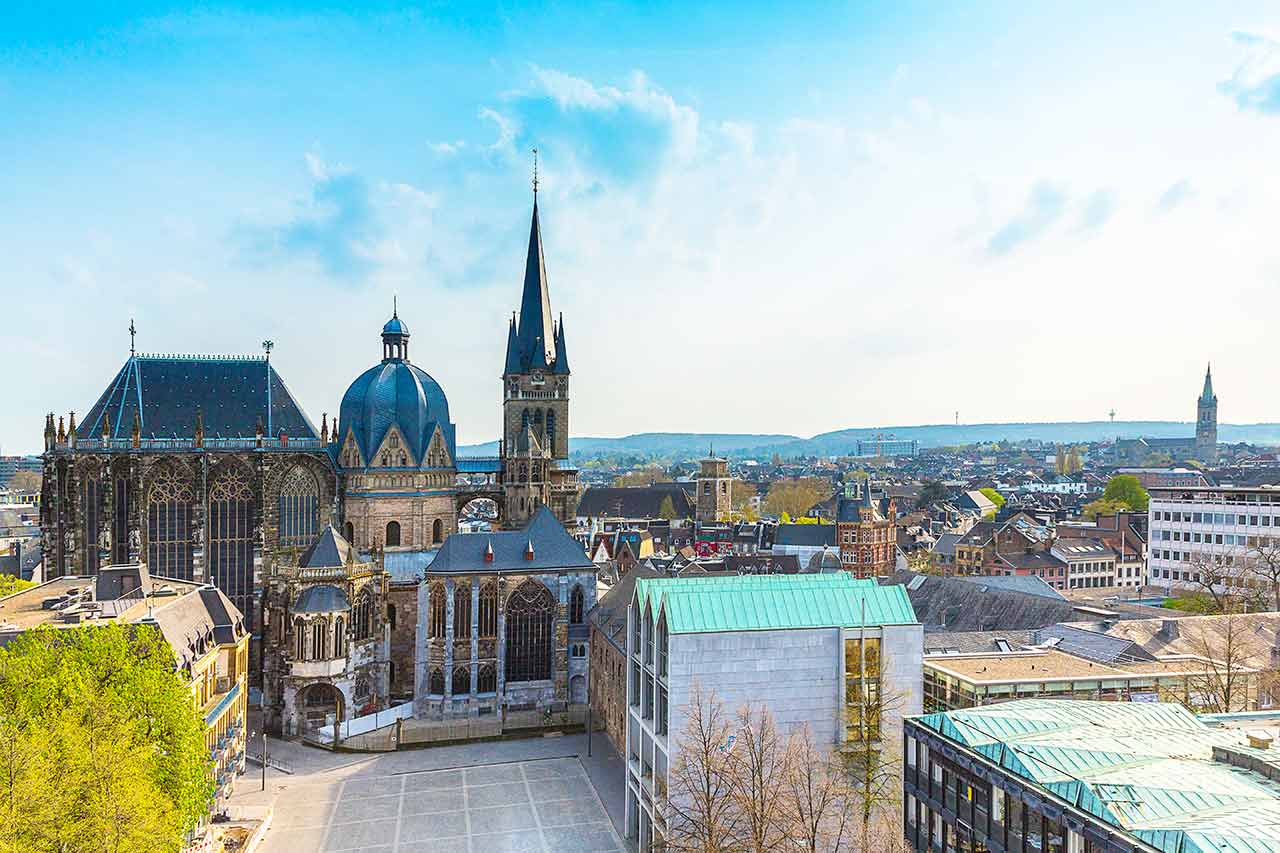
The program includes:
- Initial presentation in the clinic
- clinical history taking
- review of medical records
- physical examination
- laboratory tests (on indications):
- complete blood count
- biochemical analysis of blood
- inflammation indicators (CRP, ESR)
- indicators blood coagulation
- neurological examination
- CT/MRI scan (one region)
- functionality x-ray
- neuropsychological tests (on indications)
- differential diagnosis with other neurological diseases
- consultation of related specialists
- symptomatic specific treatment
- the cost of essential medicines and materials
- nursing services
- control examinations
- full hospital accommodation
- developing of further guidance
Required documents
- Medical records
- X-ray examination, MRI/CT scan (if available)
Service
You may also book:
 BookingHealth Price from:
BookingHealth Price from:
About the department
According to the Focus magazine, the Department of Neurology at the University Hospital RWTH Aachen ranks among the top German medical facilities specializing in the treatment of Alzheimer's and Parkinson's disease!
The department offers the full range of diagnostics and treatment of diseases of the central and peripheral nervous system, as well as neuromuscular pathologies. The clinical practice focuses on the treatment of neurodegenerative diseases (Parkinson's disease, dementia, ataxia), stroke treatment (including follow-up care), epilepsy, neuroimmunological and neuromuscular diseases. Many diseases are treated within the interdisciplinary centers with the participation of specialized experts in related fields. The Chief Physician of the department is Prof. Dr. med. Jörg Schulz.
The department includes two stations for common medical care, Intensive Care Unit, Supra-Regional Stroke Unit, Comprehensive Stroke Unit, which provides early neurorehabilitation, Section of Neuropsychology, Section of Neurogeriatrics, Section of Epileptology with 8 beds for EEG monitoring, Sleep Laboratory.
The most important structural unit in the department is the Stroke Unit, which provides effective treatment of acute stroke. The patients are monitored around the clock, so changes in their health status can be detected immediately, after which doctors take all the necessary measures. As a rule, the patient stays in the Stroke Unit from one to three days.
The department specializes in the diagnostics and treatment of the following neurological diseases:
- Ataxias (coordination impairment)
- Hereditary cerebellar diseases
- Friedreich's ataxia (autosomal recessive inheritance)
- Autosomal dominant spinocerebellar ataxia
- Diseases of the autonomic nervous system
- Multiple system atrophy, Parkinson's disease, Lewy body disease
- Autonomic neuropathy, for example, in collagenosis, diabetes mellitus, amyloidosis, Fabry disease
- Gastrointestinal disorders, neurogenic bladder disorders of unknown etiology
- Small fiber neuropathy accompanied by neurovegetative disorders
- Sweat regulation disorder of unknown etiology
- Neurogenic orthostatic hypotension
- Postural tachycardia syndrome
- Dementias and memory problems
- Epilepsy
- Huntington's disease
- Neuroimmunological disorders
- Multiple sclerosis
- Devic's disease
- Infectious and granulomatous diseases of the central nervous system (neuroborreliosis, neurosarcoidosis, etc.)
- Paraneoplastic neurologic disorders
- Rheumatic autoimmune diseases
- Cerebral vasculitis
- Autoimmune encephalopathies and synaptopathies
- Neuromuscular diseases
- Parkinson's disease and essential tremor
- Sleep disorders due to neurological disorders
- Swallowing disorders (dysphagia)
- Speech and voice disorders
- Neurovascular diseases
- Other pathologies of the central and peripheral nervous system
Curriculum vitae
Education
- 1984 - 1991 Study of Human Medicine at the University of Cologne.
- 1991 Doctoral thesis defense.
- 1992 Admission to medical practice.
- 1999 Habilitation, Faculty of Medicine, University of Tuebingen.
Qualifications
- 1992 Admission to medical practice.
- 1999 Board certification in Neurology.
Professional Сareer
- 1991 - 1993 Intern and Research Fellow, Department of Neurology, University Hospital Tuebingen.
- 1993 - 1995 Research Fellow, Department of Neurology, Massachusetts General Hospital and Harvard Medical School, Boston.
- 1995 - 1998 Research Fellow, Department of Neurology, University Hospital Tuebingen.
- 1998 - 2004 Head of the Working Group on Neurodegeneration in the Department of Neurology at the University Hospital Tuebingen.
- 1998 - 1999 Research Fellow in the Department of Psychiatry and Psychotherapy.
- 1999 - 2004 Senior Physician, Department of Neurology, University Hospital Tuebingen.
- 2004 - 2008 (W3) University Professor in Reconstructive Neurobiology and Neurology. Head of the Department of Neurodegeneration and Neurorecovery, Research Center of the German Research Foundation "Molecular Physiology of the Brain" and Center for Neurological Medicine, University of Göttingen.
- Since 2009 Head of the Department of Neurology at the University Hospital RWTH Aachen.
Awards and Honors
- 1985 - 1991 Scholarship, Student Foundation of the German People.
- 1998 Gerhard Hess Prize of the German Research Foundation.
- 1999 Schering Prize of the German Parkinson's Disease Association.
- Award Winner for Young Scientists of the International Society for Neurochemistry.
- 2000 Member of the American Neurological Association.
- 2001 Pette Prize of the German Society for Neurology.
Research Focuses
- Neurodegenerative diseases.
- Pathogenesis of neurodegenerative diseases (dementia, Parkinson's disease, ataxia, Huntington's disease, motor neuron disease).
- Clinical examinations in Alzheimer's disease, Parkinson's disease and hereditary movement disorders.
- Neuronal cell death mechanisms.
- Gene therapy and other experimental treatment methods.
Photo of the doctor: (c) Uniklinik RWTH Aachen
About hospital
According to the prestigious Focus magazine, the University Hospital RWTH Aachen ranks among the top German hospitals!
As a maximum care university medical facility, the hospital guarantees patients first-class medical services combined with a respectful and human attitude. The hospital integrates all the modern options for the accurate diagnostics, effective therapy and productive research activities within one specialized center.
The hospital has more than 60 departments, institutes and interdisciplinary centers. A competent team of professionals, consisting of more than 7,000 employees (more than 940 doctors, including about 95 professors), takes care of the patients' health. In addition, multidisciplinary teams of nurses, physiotherapists, as well as medical and technical staff are available here. The patients and respectful attitude to their social, cultural and religious affiliations are at the center of all employees' efforts.
The cornerstone of the successful clinical practice is the innovative technical base. The hospital offers the most advanced diagnostic and therapeutic equipment. Thus, the hospital has all the resources in order to provide top-class medical services.
Photo: (с) depositphotos
Accommodation in hospital
Patients rooms
The patients of the University Hospital RWTH Aachen live in comfortable single and double rooms. All patient rooms are designed with large windows, so one can enjoy a beautiful landscape view. Each patient room has an ensuite bathroom. The standard room furnishing includes an automatically adjustable bed, a bedside table, a spacious wardrobe, a TV, a radio and a telephone. Also, there is Wi-Fi access.
Meals and Menus
The patient and his accompanying person have a daily choice of three menus. If for any reason you do not eat all the foods, you will be offered an individual menu. Please inform the medical staff about your dietary preferences prior to the treatment.
Further details
Standard rooms include:
Religion
Religious services are available upon request.
Accompanying person
During the inpatient program, an accompanying person may stay with you in a patient room or at the hotel of your choice.
Hotel
During the outpatient program, you can live at a hotel of your choice. Managers will help you to choose the most suitable options.
The hospital offers a full range of laboratory tests (general, hormonal, tests for infections, antibodies, tumor markers, etc.), genetic tests, various modifications of ultrasound scans, CT scans, MRI and PET / CT, angiography, myelography, biopsy and other examinations. Treatment with medications, endoscopic and robotic operations, stereotaxic interventions is carried out here, modern types of radiation therapy are also used. The hospital offers patients all the necessary therapeutic techniques.
- Embolization of tumors and vascular malformations
- Aortic surgery, including in children
- Radiosurgical interventions in the head and body region
- Cochlear implantation
- Treatment of all types of sports injuries
These are pathologies of the brain and spinal cord, benign and malignant tumors of various localizations, congenital and acquired heart defects, joint pathologies, stroke, neurodegenerative diseases, eye injuries, inflammatory skin diseases, allergies and other pathologies.
- Oncology (EU Regional Center for Comprehensive Cancer Care Aachen)
- Pediatric cardiac surgery
- General and abdominal surgery
- Plastic and burn surgery
- Pediatric and adolescent medicine
Over 940 highly qualified doctors work at the hospital.





